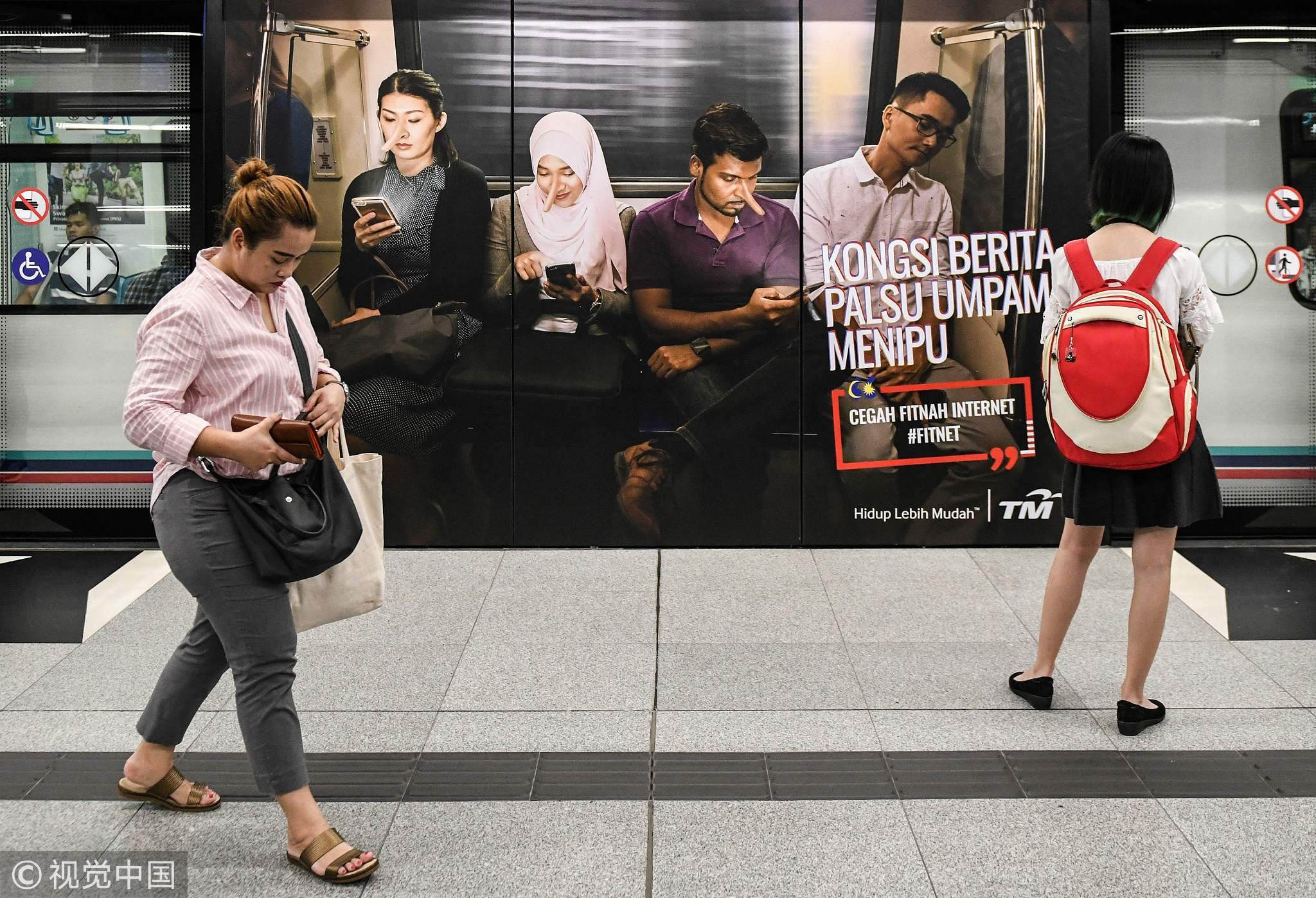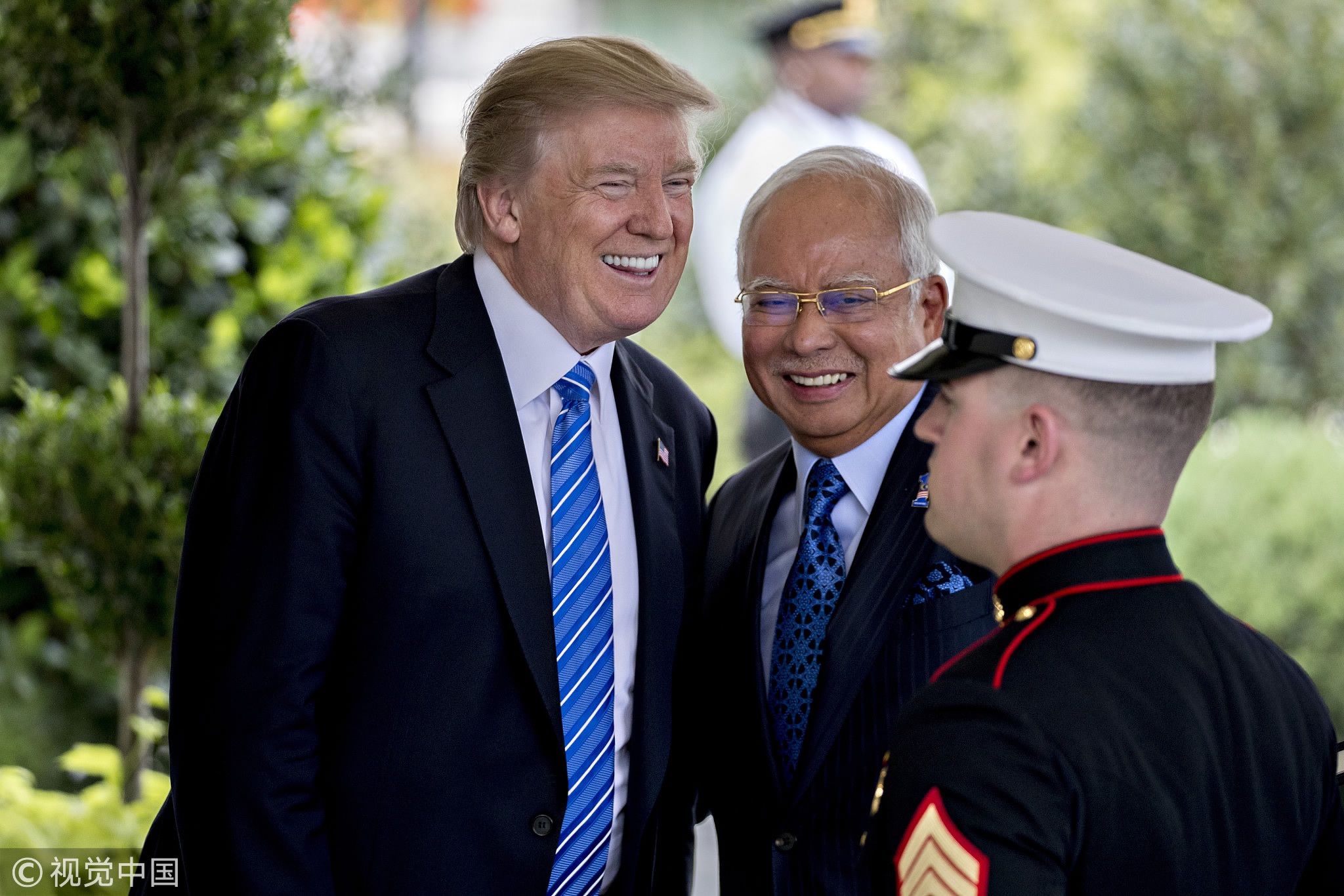
World
10:34, 03-Apr-2018
Malaysia passes 'fake news' bill despite free speech concerns
CGTN

Malaysia’s government passed a controversial “fake news” bill on Monday that could see offenders jailed for up to six years, despite concerns the new law will aim to silence criticism of embattled Prime Minister Najib Razak and curb free speech ahead of upcoming elections.
Najib, whose administration has been rocked by a scandal surrounding sovereign wealth fund 1MDB, is battling to win a third term in a general election expected within weeks.
The Anti-Fake News 2018 bill was approved by a simple majority in parliament and sets out fines of up to 500,000 ringgit (123,000 US dollars) and a maximum six years in jail for publishing what authorities deem to be fake news. The first draft of the bill had proposed jail of up to 10 years.

A train station with an advertisement reading "sharing a lie makes you a liar" in Kuala Lumpur, Malaysia, March 26, 2018. /VCG Photo
A train station with an advertisement reading "sharing a lie makes you a liar" in Kuala Lumpur, Malaysia, March 26, 2018. /VCG Photo
"This law is not intended to restrict the freedom of speech but to restrict the dissemination of fake news," said minister Azalina Othman Said.
Opposition legislators like Lim Guan Eng of the Democratic Action Party, however criticized the law's heavy penalties and its potential to limit free speech.
"This bill... is a weapon to close the truth so that what is false can be upheld as true, and what is true can be reversed as false," he said. "This is something very dangerous for our country."
The new law defines fake news as “news, information, data and reports which is or are wholly or partly false” and includes features, visuals and audio recordings.
It covers digital publications and social media and will apply to offenders who maliciously spread "fake news" inside and outside Malaysia, including foreigners, if Malaysia or a Malaysian citizen were affected.
The Anti-Fake News 2018 bill must still be debated in the Senate but is expected to be passed. After this, it needs royal assent before taking effect.
But it has already sparked widespread anger from activists, press freedom groups and the opposition, who believe it is aimed at cracking down on dissenting voices rather than safeguarding the public from false information.

September 12, 2017: US President Donald Trump (L) greets Malaysian Prime Minister Najib Razak at the White House in Washington, DC. /VCG Photo
September 12, 2017: US President Donald Trump (L) greets Malaysian Prime Minister Najib Razak at the White House in Washington, DC. /VCG Photo
The UN Special Rapporteur on freedom of opinion and expression, David Kaye, on Monday urged the government “to reconsider the bill” in a Twitter post.
Malaysia is one of the several countries in Asia turning to such legislation, emboldened by US President Donald Trump's fulminations against "fake news", but activists warn authoritarian regimes will use the laws to target opponents.
Malaysia ranks 144th out of 180 countries in the 2017 World Press Freedom Index.
Read more: The Philippines’ frontliners vs. fake news
The law also came less than a week after Malaysia’s parliament voted in favor of a move to redraw electoral borders, which opposition politicians said would tilt the election in Najib's favor.
Najib is fighting to keep his ruling Barisan Nasional (BN) coalition – which has dominated Malaysian politics for six decades – in power, amid allegations that billions of dollars were looted from 1MDB, a sovereign wealth fund he founded.
Both Najib and the fund deny any wrongdoing.
4351km
Source(s): AFP
,Reuters

SITEMAP
Copyright © 2018 CGTN. Beijing ICP prepared NO.16065310-3
Copyright © 2018 CGTN. Beijing ICP prepared NO.16065310-3